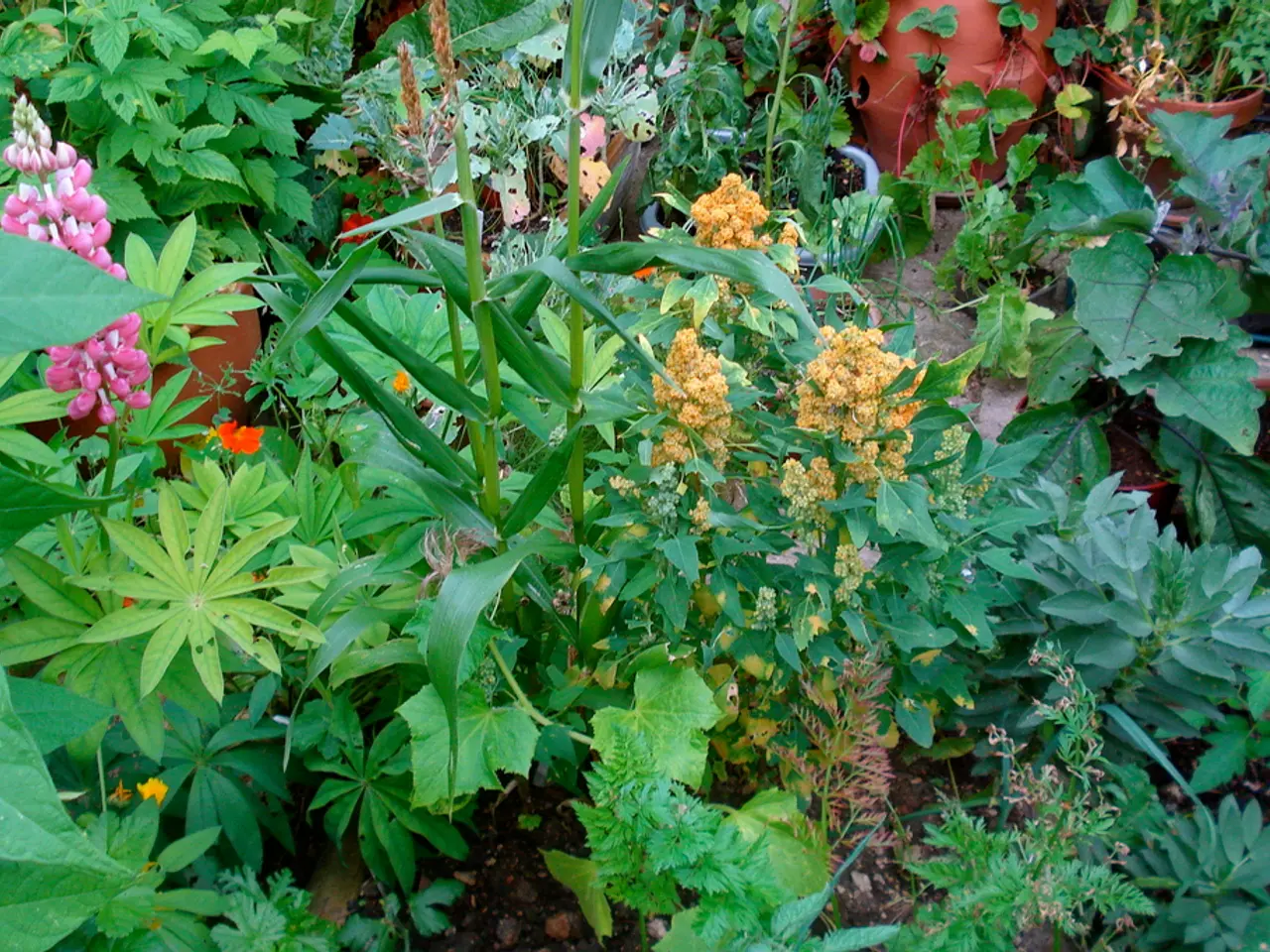Improving Mental Health through the Practice of Gardening
In the hustle and bustle of modern life, finding moments of peace and tranquillity can often feel elusive. However, a simple yet profound activity – gardening – is emerging as a potent tool for enhancing mental health and well-being.
Scientific research and expert observations have consistently highlighted the numerous mental health benefits associated with gardening. One of the most significant advantages is the reduction in depression, anxiety, and PTSD symptoms[1][4]. Engaging in gardening activities has been shown to significantly improve psychological well-being.
Another key benefit is the reduction of stress and cortisol levels, a hormone associated with stress[2]. Even a 30-minute gardening session can promote relaxation and emotional balance. The nurturing process involved in gardening also elevates mood and increases feelings of accomplishment and self-worth[2][3].
Gardening also encourages mindfulness and present-moment focus, helping to interrupt worry cycles and foster mindfulness[1][2]. This mindfulness can lead to improved mental clarity and emotional well-being.
Moreover, gardening provides opportunities for social connection and community engagement. Community gardens cultivate social cohesion, neighbourhood satisfaction, and emotional wellness through shared purpose and camaraderie among gardeners[1][3].
The physical activity and exposure to nature that gardening offers also contribute positively to mental health. Gardening encourages gentle physical movement and time outdoors, which improves cognitive function, raises serotonin ("feel-good" hormone) levels, and promotes better sleep—all factors that contribute to overall mental well-being[1][2][3].
Regular gardening has also been linked to enhanced life satisfaction, reduced social isolation, and overall mental well-being[1][4]. Furthermore, exposure to soil microbes while gardening may strengthen the immune system and improve the gut microbiome, which has emerging links to better mental health[3][4].
Outdoor plants, such as rosemary, lavender, and sunflowers, are more demanding in terms of sunlight and water but can be grown in various environments. Conversely, indoor plants like begonia, snake plant, and spider plant, require less sunlight, more controlled watering, and consistent temperatures, making them suitable for home environments.
Gardening can be a daunting task in urban environments, but incorporating plants into life, whether indoor or outdoor, can bring numerous psychological benefits. Watering plants at the same time every day, like morning tea or evening wind-down, can bring peace and presence throughout the day.
Moreover, gardening can be romanticized and made part of pleasant routines, such as listening to music or an audiobook. Engaging actively in gardening can help achieve a meditative state, fostering relaxation, mental clarity, and emotional well-being.
For those seeking resources on plant caring, Personal Science Labs offers a wealth of information based on research from the Institute for Life Management Science. Visiting the Personal Science Labs provides access to courses, certifications, podcasts, videos, and other tools.
In conclusion, gardening is a powerful, multidimensional therapeutic tool that combines physical activity, mindfulness, social engagement, and connection with nature to support and improve mental health substantially[1][2][3][4]. By providing a mental vacation from overstimulation and daily anxieties, gardening can help reconnect with oneself and find peace again in today's overstimulated world.
- Scientific evidence and expert views suggest that gardening, aside from being a hobby in home-and-garden, plays a significant role in enhancing mental health and overall life management, due to its numerous psychological benefits.
- One of the key advantages of gardening is its ability to reduce symptoms of depression, anxiety, and PTSD, as well as alleviate stress and cortisol levels, promoting relaxation and emotional balance.
- Gardening also encourages mindfulness and present-moment focus, interrupting worry cycles and fostering mindfulness, which in turn leads to improved mental clarity and emotional well-being.
- For those looking for resources on plant care, they can turn to Personal Science Labs, offering information based on research from the Institute for Life Management Science, providing courses, certifications, podcasts, videos, and other tools to help in gardening and reaping its mental health benefits.




